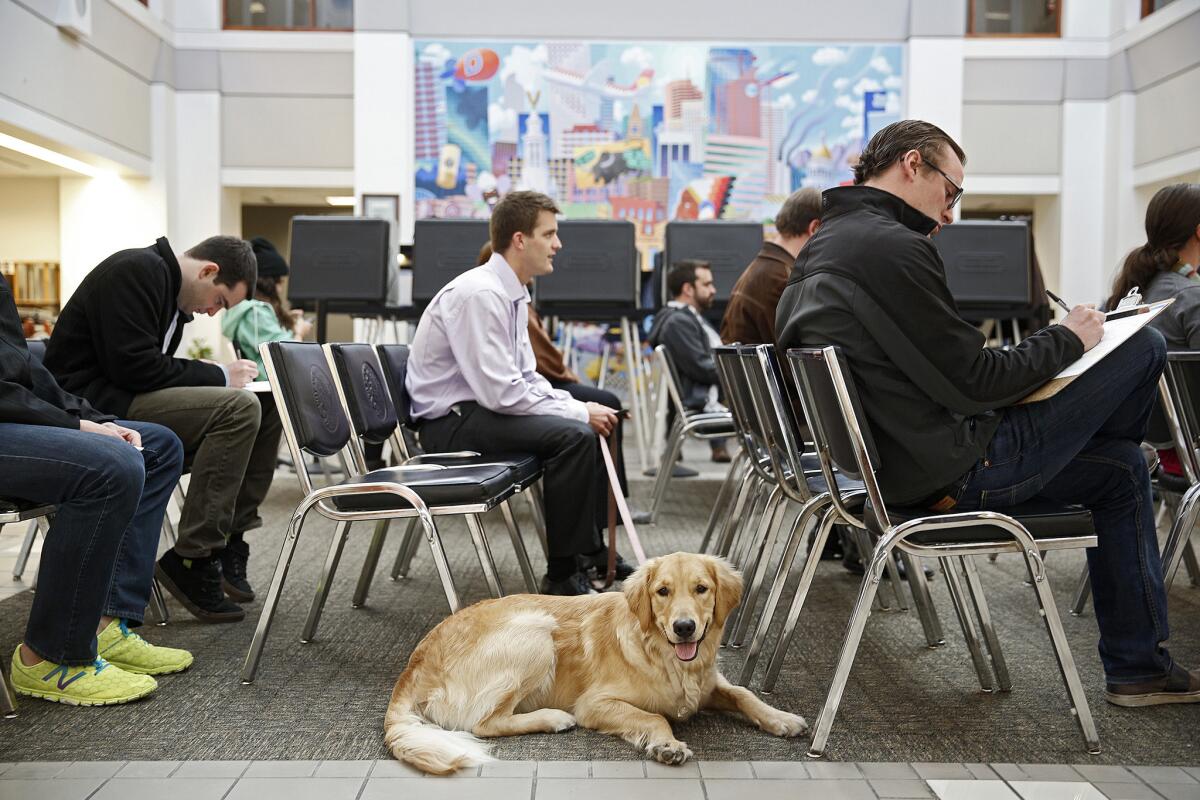It’s election day but lots of Americans don’t care; who are they?

Reporting from Washington — Today’s election day. You’ve probably heard about it, but you may not care much.
Only 4 in 10 Americans say they’ve given “quite a lot” or even “some” thought to the midterm elections, according to Gallup’s most recent survey. That’s the smallest share the organization has found in any of the last six midterms.
Moreover, the percentage of people saying they are certain to vote, 58%, is tied with 1998 for the lowest Gallup has found. In 2010, when Republicans scored major gains, 68% of Americans said they were certain to vote. This time around, the GOP is once again likely to do well, but with a smaller electorate.
One caveat: This is a nationwide poll, and interest is certainly higher in those states that have hotly contested elections. Several of the nation’s biggest states -- California, Texas, New York -- lack competitive statewide contests this year, which likely has some effect on the national numbers.
Still, the decline in interest that Gallup found jibes with other polls showing disillusionment with both parties.
Both Democrats and Republicans are a little less likely to say they plan to vote, the survey found. But self-described independents are dramatically less engaged. Only 41% of independents said they were certain to vote, down from 60% in 2010 and by a significant margin the lowest percentage Gallup has found.
All that indicates an electorate even more partisan than normal, with hard-core Democrats and Republicans making up a larger share of the vote than typical.
Who are the people who won’t vote? A separate survey by the Pew Research Center took a detailed look at them. In comparison with those who do vote, non-voters are younger, more often racial minorities and, perhaps most importantly, financially stressed.
About one-third of nonvoters -- those who aren’t registered or who tell pollsters that they don’t plan to vote -- are younger than 30. Among likely voters, only 10% are that young. The share of racial and ethnic minorities among nonvoters, 43%, is twice as high as among likely voters.
Only about half of nonvoters have a credit card, compared with more than three-quarters of likely voters. Almost half, 45%, said they have had trouble paying their bills in the last year, compared with fewer than a third of likely voters. And a third of nonvoters have received a means-tested government benefit in the last year, compared with fewer than 1 in 5 likely voters.
For all those differences in race, age and economic status, however, voters and nonvoters don’t show big differences of opinion on issues Pew asked about, including their views on immigration and President Obama’s healthcare law.
The two groups are about equally likely to express skepticism about how effective government can be. Nonvoters were more likely than voters to say that government aid to the poor does more good than harm, however.
By 51% to 44%, nonvoters said government help to the poor does more good; by 52% to 43% likely voters said such aid does more harm.
For more on politics and policy, follow @DavidLauter on Twitter.
More to Read
Get the L.A. Times Politics newsletter
Deeply reported insights into legislation, politics and policy from Sacramento, Washington and beyond. In your inbox three times per week.
You may occasionally receive promotional content from the Los Angeles Times.











